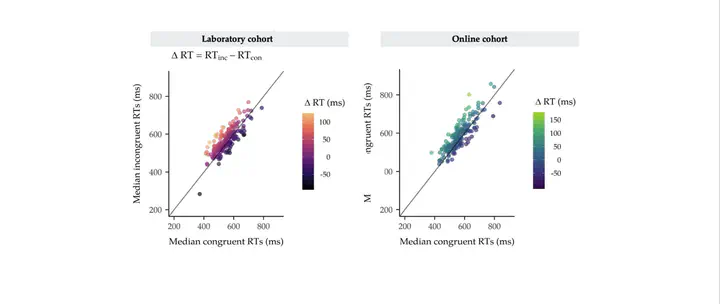The affective priming paradigm as an indirect measure of food attitudes and related choice behaviour

Abstract
In this Registered Report, we assessed the utility of the affective priming paradigm (APP) as an indirect measure of food attitudes and related choice behaviour in two separate cohorts. Participants undertook a speeded evaluative categorization task in which target words were preceded by food primes that differed in terms of affective congruence with the target, explicit liking (most liked or least liked), and healthiness (healthy or unhealthy). Non-food priming effects were tested as a manipulation check, and the relationship between food priming effects and impulsive choice behaviour was also investigated using a binary food choice task. As predicted, priming effects were observed for both healthy and unhealthy foods, but there was no difference in the magnitude of these effects. This may suggest that the paradigm is most sensitive to affective, but not cognitive, components of attitudes (i.e., healthiness), but alternative theoretical explanations and implications of this finding are discussed. Food and nonfood priming effects were observed in both reaction time (RT) and error rate (ER) data, but contrary to expectations, we found no association between food RT priming effects and choice behaviour. All findings from confirmatory analyses regarding RT and ER priming effects, and the absence of the expected correlations between priming effects and impulsive food choices, were successfully replicated in the online cohort of participants. Overall, this study confirms the robustness of the APP as an indirect measure of food liking and raises questions about its applied value for research of eating behaviours.